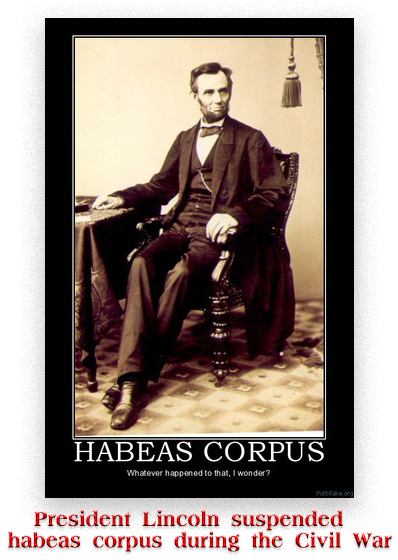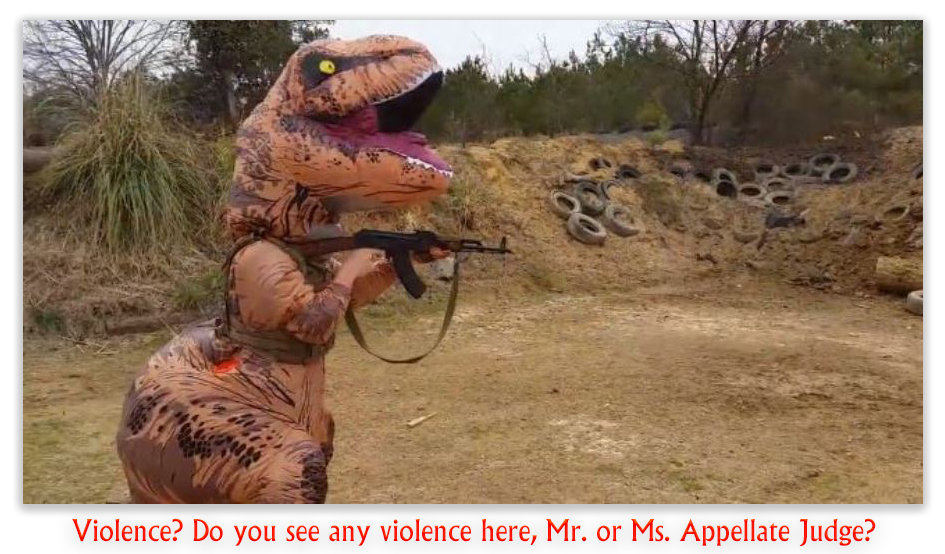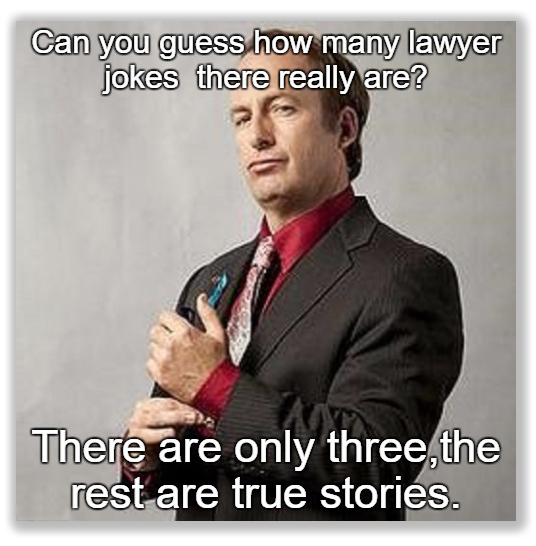We post news and comment on federal criminal justice issues, focused primarily on trial and post-conviction matters, legislative initiatives, and sentencing issues.

INMATES GO 2-2 ON § 2255 DECISIONS LAST WEEK
The Courts handed federal inmates two 28 USC § 2255 wins and two losses last week.
 For the uninitiated, habeas corpus (literally, a Latin imperative phrase to “produce the body”) has been around for about 806 years, give or take, ever since a band of angry noblemen forced King John to sign the Magna Carta (the “Great Charter of Liberties”) as an alternative to having his royal butt kicked.
For the uninitiated, habeas corpus (literally, a Latin imperative phrase to “produce the body”) has been around for about 806 years, give or take, ever since a band of angry noblemen forced King John to sign the Magna Carta (the “Great Charter of Liberties”) as an alternative to having his royal butt kicked.
One liberty the noblemen secured was the right not to be locked up without reason. The Magna Carta empowered courts to issue a writ (order) to a jailer to “produce the body” – that is, come to court with a particular prisoner and show why that prisoner’s detention is legal. Habeas corpus has become known as the “Great Writ,” so ingrained in English common law that our constitution simply assumes the right exists. The constitution only references habeas corpus in the negative, by denying the president the right to suspend the writ except in time of war.
Notwithstanding the constitutional origins of habeas corpus, Congress controls how prisoners may exercise their right to seek the writ in the federal courts by statute. For instance, 28 USC § 2244 regulates the filing of habeas corpus petitions for all claims of illegal detention for reasons other than a defect in the conviction or sentence. Section 2255 of Title 18 permits a federal prisoner to file a habeas corpus petition where the claim is that the conviction or sentence is contrary to law.
Every federal prisoner has the right to bring one § 2255 motion, subject to rather strict time limits. Bringing a second such petition is possible under very limited circumstances, with permission first being granted by the Court of Appeals.
Now for the week’s news:
 (1) Dearnta Thomas pled guilty to a substantive RICO offense, and an 18 USC § 924(c) count for using a gun in furtherance of a crime of violence. The predicate “crime of violence” for the § 924 offense was aiding and abetting the commission of a VICAR offense (Violent Crimes in Aid of Racketeering Activity under 18 USC § 1959), those predicate violent crimes being two Virginia state-law offenses, a conviction for use or display of a firearm in committing a felony and another for “pointing, holding, or brandishing a firearm, air or gas-operated weapon or object similar in appearance.”
(1) Dearnta Thomas pled guilty to a substantive RICO offense, and an 18 USC § 924(c) count for using a gun in furtherance of a crime of violence. The predicate “crime of violence” for the § 924 offense was aiding and abetting the commission of a VICAR offense (Violent Crimes in Aid of Racketeering Activity under 18 USC § 1959), those predicate violent crimes being two Virginia state-law offenses, a conviction for use or display of a firearm in committing a felony and another for “pointing, holding, or brandishing a firearm, air or gas-operated weapon or object similar in appearance.”
After the 2019 Supreme Court decision in United States v. Davis, Dearnta filed for permission under 28 USC § 2244 to bring a successive § 2255. Last week, the 4th Circuit held that Davis announced a new substantive rule of constitutional law retroactive to cases on collateral review by the Supreme Court and that Dearnta’s argument – that the state convictions were not crimes of violence within the meaning of Davis – stated a plausible claim.
(2) Meanwhile, Travis Harris asked the 5th Circuit for permission to file a successive § 2255 arguing that after Davis, his conviction for using a destructive device during a crime of violence (18 USC § 844(i)), should be thrown out, because the predicate offense – arson – was no longer a crime of violence.
The 5th agreed, holding – as the 4th Circuit has previously said – that Davis was retroactive and that Travis raised a plausible enough claim to go forward.
 (3) Things didn’t go so well for Kevin Kelley in the 1st Circuit. Kev figured he had a “gotcha:” it turned out the Assistant U.S. Attorney who had signed Kevin’s indictment had not paid his bar dues. Because F.R.Crim.P. 7(c)(1) says that an indictment “must be signed by” a government lawyer, and the AUSA’s law license had been suspended for nonpayment of dues, Kevin argued in his § 2255 motion that the bad signature invalidated the indictment and “robbed the district court of jurisdiction to proceed against him.”
(3) Things didn’t go so well for Kevin Kelley in the 1st Circuit. Kev figured he had a “gotcha:” it turned out the Assistant U.S. Attorney who had signed Kevin’s indictment had not paid his bar dues. Because F.R.Crim.P. 7(c)(1) says that an indictment “must be signed by” a government lawyer, and the AUSA’s law license had been suspended for nonpayment of dues, Kevin argued in his § 2255 motion that the bad signature invalidated the indictment and “robbed the district court of jurisdiction to proceed against him.”
Last week, the 1st Circuit rejected Kev’s technicality. “The Supreme Court, after all, has long viewed a government lawyer’s indictment signing as necessary only as evidence of the authenticity of the document,” the Circuit said, and Rule 7’s “intent is for common sense to prevail over technicalities.” Thus, the Circuit said, “it is unsurprising that many courts refuse to stamp ‘invalid’ an indictment signed by a prosecutor with bar-license problems if other evidence shows that the government was backing the prosecution — with some cases explicitly saying that in such a situation, the complaining party cannot prove prejudice.”
Here, the evidence showed the indictment had been approved by the AUSA’s superior, and that was good enough for common sense to prevail, the Court ruled, especially where Kevin could prove he was not harmed by the suspended AUSA working under a nonpayment suspension.
(4) Finally, Greg Olson got a target letter from the U.S. Attorney, telling him he would be indicted, but offering that he could get a lawyer and work out a preindictment deal. Greg and his lawyer worked out a 30-month plea to tax evasion, but the deal foundered when the government refused to provide any discovery. Greg got indicted, hired a different lawyer, but ended up with a 48-month sentence.
 Greg filed a § 2255 motion claiming his pre-indictment lawyer screwed up the plea deal. But last week, a 9th Circuit panel shot him down. Precedent in the circuit holds a defendant has no 6th Amendment right to effective counsel before he is a defendant, meaning that a three-judge panel cannot overrule the prior case. Of course, in such cases, if a three-judge panel thinks the precedent is nonsense, it can refer its case to the court en banc, but here, the Circuit said, “In determining whether this is an appropriate case to do so, we must assess whether Olson might prevail if current circuit precedent were to be overruled… The record does not support Olson’s claim that his counsel was ineffective. An en banc ruling would therefore not affect the result.”
Greg filed a § 2255 motion claiming his pre-indictment lawyer screwed up the plea deal. But last week, a 9th Circuit panel shot him down. Precedent in the circuit holds a defendant has no 6th Amendment right to effective counsel before he is a defendant, meaning that a three-judge panel cannot overrule the prior case. Of course, in such cases, if a three-judge panel thinks the precedent is nonsense, it can refer its case to the court en banc, but here, the Circuit said, “In determining whether this is an appropriate case to do so, we must assess whether Olson might prevail if current circuit precedent were to be overruled… The record does not support Olson’s claim that his counsel was ineffective. An en banc ruling would therefore not affect the result.”
In re Thomas, Case No 19-292, 2021 U.S. App. LEXIS 5316 (4th Cir. February 23, 2021)
In re Harris, Case No 19-51045, 2021 U.S. App. LEXIS 5719 (5th Cir. February 25, 2021)
Kelley v. United States, Case No 19-1932, 2021 U.S. App. LEXIS 5646 (1st Cir. February 25, 2021)
United States v. Olson, Case No 19-16591, 2021 U.S. App. LEXIS 5027 (9th Cir. February 22, 2021)
– Thomas L. Root

